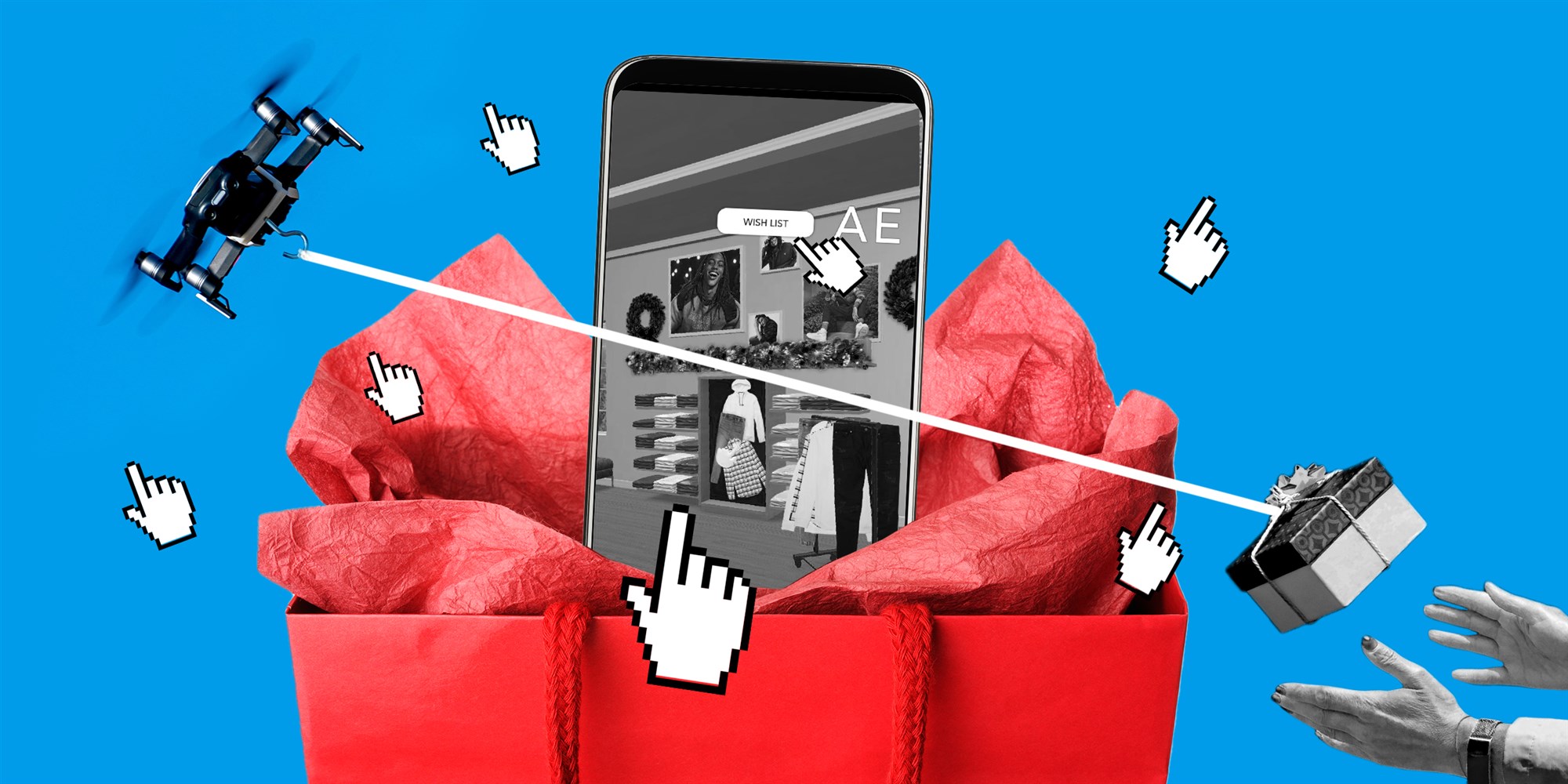The coronavirus decimated the retail industry in 2020 — but also fueled dramatic advances in new technology. From Walmart’s self-driving delivery trucks to American Eagle’s virtual stores, the retail industry has advanced several years in just nine months, experts say.
“The acceleration of the customer toward digital capabilities has been unlike anything I’ve ever seen,” Shelley Bransten, Microsoft’s vice president of global retail and consumer goods, told NBC News.
But while drones and autonomous vehicles may catch shopper interest, they may not be the technologies that are here to stay once stores open up again. Instead, curbside pickup, stores with a smaller footprint, and personalized shopping fueled by artificial intelligence may all become a regular fixture when it comes to shopping in the post-pandemic era, industry watchers say.
“The pandemic has changed how we interact with stores, and consumers will prefer a physical-digital hybrid model once the world is back to normal,” Kristen Gall, president of of the cashback website Rakuten, told NBC News in an email.
The pandemic has sped up the shift away from storefronts to online shopping by roughly five years, according to IBM’s annual U.S. Retail Index, released in August. Department stores are expected to decline by more than 60 percent this year, while e-commerce is projected to grow by nearly 20 percent in 2020, it said.
Outdoor retailer REI is one brand that has followed its shoppers to online platforms. Known for its bike assembly services, the company launched a virtual outfitting service this summer that enabled customers to schedule a free online appointment with an agent who will walk through how to assemble a bike or find the right fit for hiking boots or talk through outdoor gear for an upcoming camping trip.
“As e-commerce is becoming a bigger piece of most of the bigger brands’ businesses now, you’re getting that critical mass online and they will say, “How can I invest in these new capabilities?’” Bransten said.
As retailers capture more data about customers online, AI tools become more sophisticated. For instance, CVS Pharmacy told NBC News earlier this month that it uses data from its loyalty program, ExtraCare, to analyze individual baskets, amount spent, shopping frequency and categories a consumer shops. Nordstrom said it used its customers’ wish lists to understand popular items for its annual anniversary sale and adjusted in real time to customer demand.
